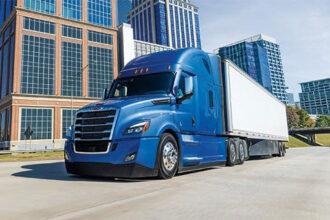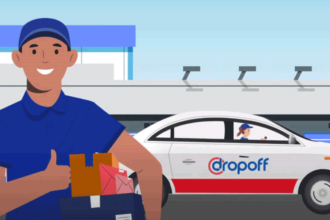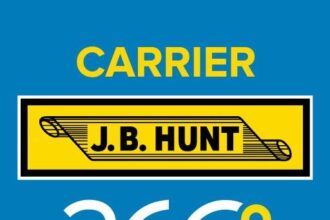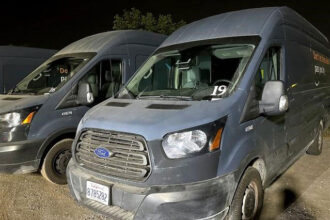Table of Contents
Introduction
Thinking of becoming an owner-operator? Be the boss of your trucking business, choosing routes, setting rates, and building your brand. Enjoy independence and earnings.
There’s the exciting prospect of building your own brand and making a name for yourself in the industry.
If you’re considering becoming an owner-operator, get ready to shoulder the costs and responsibilities that come with it.
Check before starting your owner-operator startup are:
1. Market Survey
Before launching your owner-operator trucking business, conduct thorough market research. Define your target market, assess competitors, and stay informed about industry trends. This information helps you create a unique selling proposition and develop an effective marketing strategy, increasing your chances of success.
- Enables target market identification
- Facilitates competitive analysis
- Keeps you informed about market trends and demand
- Validates your business concept
- Consumes time
- Causes analysis paralysis
- Involves costs
- Encourages imitation
- Creates information overload
Market Research Essentials:
- Understand the industry and opportunities.
- Gather data on customers, competitors, and the market.
- Guide pricing, strategy, and marketing.
- Consider location, industry, size, and needs.
- Identify key competitors and assess strengths and pricing.
- Track industry changes, seasonal trends, and regulations.
- Identify your unique selling proposition (USP).
- Create a compelling value proposition.
Marketing Plan:
- Use research for customer outreach.
- Align with business goals.
Market Research Importance:
- Validate business idea and enhance the plan.
- Vital for launching an owner-operator business.
2. Statutory Obligations
Comply with state and federal regulations as an owner-operator, covering registration, authority, licenses, and ELD use. It ensures your legality, safety, and efficiency while avoiding fines and enhancing profitability.
- Guarantees your adherence to state and federal laws.
- Elevates safety standards, reducing the risk of accidents.
- Minimizes the potential for fines, penalties, and audits, safeguarding your finances.
- Increases administrative burden
- Involves ongoing compliance costs
- Limits operational flexibility
Business Registration Requirements:
- Register with state and federal agencies.
- File articles or obtain a license depending on your entity type.
- Obtain an EIN from the IRS.
Authority and Permissions:
- Get FMCSA authority for interstate operation.
- Apply for a USDOT number for safety records.
- Secure an MC number for freight/passenger transport.
- Register with UCR and pay annual fees.
Licenses and Permits:
- Obtain a CDL for truck operation.
- Get IFTA license and decals for fuel tax reporting.
- Acquire IRP license and cab card for multi-jurisdictional operation.
Electronic Logging Device (ELD) Compliance:
- Comply with ELD mandate for HOS recording.
- ELDs connect to your truck’s engine and log driving info.
- Manage HOS compliance, which limits driving hours.
>>>PRO TIPS: How to Become an Owner-Operator Truck Driver
3. Financial Planning
Financial planning for your owner-operator business includes estimating costs, setting prices, and exploring financing. It provides a clear financial roadmap for covering expenses, generating profits, and securing funds for success.
- Helps estimate startup costs effectively.
- Enables you to project and manage ongoing expenses.
- Empowers you to establish a competitive pricing strategy.
- Provides the means to explore various financing options.
- Demands an initial investment.
- Involves complexity, especially if you lack financial expertise.
- Poses market uncertainty.
Startup Costs:
- Identify one-time expenses for equipment and permits.
- Use online tools for cost estimation.
Ongoing Expenses:
- List recurring costs like fuel and maintenance.
- Estimate monthly or per-mile expenses.
Pricing Strategy:
- Set rates that cover costs and generate profit.
- Consider load specifics and market rates.
- Research rates with online tools.
Financing Options:
- Explore funding sources like loans and grants.
- Compare terms and conditions.
- Use online resources to find financing.
4. Equipment and Maintenance
Succeeding as an owner-operator means wisely choosing and maintaining your trucks and equipment. Pick the right vehicles, explore leasing, and ensure regular upkeep. This is vital for business performance, efficiency, safety, and profitability.
- Enhances operational efficiency
- Offers financial flexibility
- Provides ownership control
- Increases safety and reliability
- Enhances fuel efficiency
- Involves substantial upfront costs
- Entails ongoing maintenance expenses
- Requires time and effort for upkeep
- Leads to safety concerns.
Truck and Equipment Procurement:
- Choose the right truck and trailer based on your cargo and terrain.
- Check online listings on sites like Truck Paper and Commercial Truck Trader.
- Decide between buying or leasing, considering costs and ownership benefits.
- Explore financing options through OOIDA’s Truck Financing or ATBS’s services.
Regular Equipment Maintenance:
- Maintain your truck and equipment for safety and performance.
- Carry out regular inspections, repairs, and preventive maintenance.
- Follow manufacturer-recommended tasks like oil changes and brake adjustments.
- Keep a maintenance log for history and expenses.
5. Insurance Coverage
Insurance is crucial for owner-operators. It protects you against losses and liabilities, enhances credibility, and ensures long-term success.
- Safeguards Assets
- Meets Legal Requirements
- Enhances Credibility
- Covers Liability
- Offers Flexibility
- Involves costs
- Requires research
- Has complex policies
- Increases operational costs
- Limits cash flow
Liability Insurance:
- Mandatory for carriers.
- FMCSA minimum is $750,000, but $1 million is often preferred.
- Options for higher limits and additional coverage.
Physical Damage Insurance:
- Covers equipment damage from various causes.
- Costs vary based on equipment and conditions.
Cargo Insurance:
- Covers cargo damage or loss.
- Depends on cargo type.
Other Insurance:
- Includes workers’ comp, health, life, and more.
6. Business Structure
As an owner-operator, you must choose your business structure wisely. Options include operating independently with your own authority or working under another carrier.
This choice affects legal, tax, liability, and operational aspects, so seek professional advice for a well-informed decision aligned with your goals and obligations.
- Provides independence for owner-operators with authority
- Offers convenience for owner-operators without authority
- Reduces the administrative burden for owner-operators without authority
- Restricts your operational freedom and control over the business.
- Requires you to adhere to the policies and rules of the carrier or broker.
- Results in less flexibility in choosing the types of freight to haul.
With Authority:
- Independence: Operate as an independent interstate carrier with your own authority.
- Control: Choose customers, rates, and haul various freight types.
- Responsibility: Handle insurance, licenses, permits, and expand hiring or leasing.
- Challenges: Handle more paperwork and compete for customer acquisition.
Without Authority:
- Lease Arrangement: Operate under another carrier’s or broker’s authority.
- Administrative Ease: No need for your authority, insurance, licenses, or customer hunting.
- Control Limitation: Follow the rules and policies of your carrier or broker.
7. Contract Negotiations
Contract negotiation is absolutely vital. It ensures clear, binding agreements with clients or brokers, protecting your interests and fostering profitable relationships.
- Empowers you to drive agreements
- Fosters professionalism and respect
- Promotes flexibility and compromise
- Creates win-win situations
- Mitigates common negotiation pitfalls
- Complicates communication
- Increases risk of disputes
- Delays the start of work
- Creates uncertainty
- Requires skilled negotiation
- Contract Elements: Legally bind rights, rates, payments, and more.
- Benefits: Prevent disputes, ensure smooth operations, protect interests.
- Negotiation Steps: Initiate confidently, be flexible, avoid pitfalls.
- Online Tools: Use resources like OOIDA’s Contract Review or ATBS’s services.
8. Load Booking
Use online load boards, engage with brokers, and find direct clients for profitable loads. It’s crucial for income, efficiency, and your satisfaction as an owner-operator.
- Expedites load finding
- Facilitates rate negotiation
- Enhances efficiency
- Provides access to exclusive loads
- Fosters long-term relationships
- Limits personal connections
- Involves broker fees
- Results in uncertain workflow
- Requires negotiation skills
- Depends on internet connectivity
Load Boards:
- Match loads using type, weight, distance, rate.
- Negotiate rates with shippers or brokers.
- Use tools like DAT and Truckstop for load boards.
Freight Brokers:
- Apply niche or regional specialization.
- Enjoy time-saving with paperwork and billing.
- Access exclusive loads not on load boards.
- Use tools like Freight Broker Connect and 123Loadboard to help find reputable brokers.
Direct Clients:
- Build long-term relationships.
- Enjoy higher rates and skip broker fees.
- Employ steady, consistent work, often in contracts.
- Use search engines like Google or Bing to find potential clients in your niche and region.
>>>GET SMARTER: Best Semi-Trucks for New Owner-Operator
9. Route Planning
Optimize your routes efficiently to save time, fuel, and mileage as an owner-operator. Use online tools, check weather and traffic conditions, and assess tolls and fees to enhance safety and boost profitability.
- Enhances efficiency
- Improves safety
- Saves money
- Optimizes time
- Enhances Satisfaction
- Limits spontaneity
- Overlooks local knowledge
- Leads to inaccurate weather predictions sometimes
- Depends on internet connectivity
- Neglects driver experience
Tools for Efficient Planning:
- Utilize online mapping tools such as Bing Maps or Google Maps.
Weather Considerations:
- Check the weather forecast before departure for safety.
- Monitor weather updates during the trip and adjust routes accordingly.
- Avoid hazardous conditions like heavy rain, snow, fog, and high winds.
- Access accurate weather data from sources like Weather Channel or AccuWeather.
Traffic Management:
- Assess traffic conditions before embarking on your journey.
- Stay updated on real-time traffic updates and adapt your route to avoid congestion, road closures, or accidents.
- Plan trips to avoid peak traffic hours.
10. Delivery Management
Professional delivery management is vital for owner-operators. It includes proper loading/unloading, communication, and issue resolution. This step directly affects your reputation, customer satisfaction, and business sustainability.
- Enhances cargo security through proper loading and unloading practices.
- Provides documentation through bill of lading (BOL) and proof of delivery (POD).
- Maintains clear and frequent communication with clients, ensuring transparency.
- Improves reputation, customer satisfaction, and repeat business.
- Neglects proper loading/unloading procedures, risking cargo damage.
- Lacks preparation for issue resolution, leading to potential delays and setbacks.
Loading/unloading:
- Secure cargo properly.
- Use appropriate equipment and tools.
- Follow safety procedures.
- Inspect load before and after handling.
- Document damages or discrepancies.
- Obtain a bill of lading (BOL) and proof of delivery (POD).
Communication with clients:
- Confirm pickup and delivery times and locations.
- Provide status updates and progress reports.
- Notify clients of any delays or issues.
- Maintain polite and courteous communication.
- Address client questions and concerns.
Pro Tips
- Start with a solid business plan outlining goals and financial projections.
- Choose the right legal structure and register your business.
- Maintain meticulous financial records and consider professional help.
- Invest in comprehensive insurance coverage.
- Regularly maintain and inspect your equipment.
Recap
Becoming an owner-operator offers independence and earning potential, but it comes with costs and responsibilities.
Proper preparation in market research, compliance, financial planning, equipment, insurance, business structure, contract negotiation, load booking, route planning, and delivery management are key to success in the trucking industry.



















